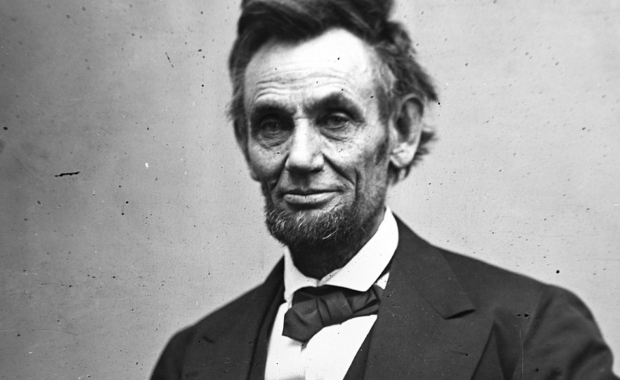Success Advice
5 Historical Figures to Inspire the Modern Leader

Standing out at the front and leading can sometimes be a lonely station to hold. After all, an inexperienced leader must be able to develop their own voice, while trusting those around them enough to seek counsel for those difficult decisions. Neither of which are skills that can be developed overnight.
One of the most influential historical figures, Benjamin Franklin, developed his own solution to this problem. Franklin gathered up the works and writings of those that he looked up to, read and reread them and took incredibly detailed notes.
By studying those who came before, Franklin was able to fashion himself into the man we know him as today. And just as he did, the modern leader can look back into the annals of history to draw inspiration from some of the greatest figures who’ve ever lived, just as we’ve done in this blog.
1. Sun Tzu – Observe & Adapt
Just as water changes course per its surroundings, a leader must learn and adapt to any situation – this could be mean responding to anything from the economic landscape to your competition’s activities.
The much-celebrated Zhou Dynasty military leader, writer and philosopher, Sun Tzu remarked that a leader must observe their surroundings to ensure they can gain a greater understanding of what’s to come.
Of course, The Art of War is written with the extreme backdrop of 500 BC China in mind, but Sun Tzu’s advice in its raw format still rings true for the modern professional: studying your environment, and your competition puts you in the best position to make the most of any opportunity.
“Victorious warriors win first and then go to war while defeated warriors go to war first and then seek to win.” – Sun Tzu
2. Toussaint Louverture – Find Your Course & Remain Steadfast to its Outcome
A former slave, enthused by the principles of the French Revolution, Toussaint Louverture helped to defeat the European empires in San Domingo, now known as Haiti, and purge his colony of slavery.
During the outset of the revolution, Louverture remained steadfast to one core ideal: to abolish the slave trade in the colony. To accomplish his goals, Louverture allied himself alongside the French and Spanish armies. Rather than simply associate himself under the flag of his nation, he fought alongside troops that shared his principles.
To this end, Louverture was successful in his attempts to eradicate slavery by setting a course and doing whatever was necessary to ensure it was achieved in the end.
3. Nelson Mandela – Be the Shining Example Your People Need
Sometimes, pretending to be confident and courageous is confidence and courage. Nelson Mandela, known the world over, was rightly acclaimed as a fearless leader, even when he had every right to be genuinely terrified.
In 1994, during his presidential election campaign in South Africa, Mandela was travelling in a small plane to give a speech to his Zulu supporters. When the aircraft was twenty minutes away from its destination, one of the engines failed; inciting panic.
However, when the other passengers of the plane looked over to Mandela, he sat quietly and calmly reading the newspaper. Eventually, the plane was successfully grounded, and the pilot had managed to get everyone to safety.
As for Mandela, he later confessed that he’d been just as scared as anyone else, but simply refused to allow the fear to overcome him, and by doing so he was able to keep the other passengers calm too.
Of course, this doesn’t mean you need to risk your life; instead, it means learning to deal with the fears and anxieties of the day-to-day world of running a business. Remember, courage is not an absence of fear; it’s inspiring others to move beyond it.
4. Abraham Lincoln – Think Before You Speak
Pointing out the mistakes of others is rarely a catalyst for change, and it seldom leads to learning anything worthwhile. Human beings aren’t driven by reason but emotion. So, a public dressing down is far more likely to reflect poorly on you – even if it is warranted.
Abraham Lincoln learned this lesson the hard way. In 1842, a young Lincoln publicly rebuked political rival James Shields during a debate on banking in Illinois. Lincoln’s posturing angered Shields enough to challenge Lincoln to a duel, in which the victor took the life of his opponent and the pride of victory.
Lincoln was saved only by the grace of a group of mutual friends, who sensibly talked Shields down. It was at this time that Lincoln realised his approach was making more enemies than friends. His new policy, which served him well during his time in the White House, was to understand what motivated his rivals, accept their shortcomings and dial back on the aggression.
In doing so, Lincoln’s reputation for understanding won him many admirers. In fact, the book Team of Rivals: The Political Genius of Abraham Lincoln by historian Doris Kearns Goodwin, explains how Lincoln was able to turn many of his political enemies into members of his own cabinet.
During the civil war, when someone spoke out against the Southern states, Lincoln simply said, “don’t criticise them; they are just what we would be under similar circumstances.”
“Adhere to your purpose and you will soon feel as well as you ever did. On the contrary, if you falter, and give up, you will lose the power of keeping any resolution, and will regret it all your life.” – Abraham Lincoln
5. Niccolò Machiavelli – Recruit the Very Best
To gain a better understanding of where you’re headed, you’ll need trusted people around you. In his famous work The Prince, Niccolò Machiavelli maintained that in order to find the very best, you must first understand your own weaknesses. In a modern sense, this means you must understand where you could improve in order to successfully fill any skills gaps.
However, finding the very best isn’t enough, it’s vital that you learn how to get the very best from them, and in fact, how they can get the best of you too.
For Machiavelli, that translated into showing his advisors, he valued honest opinion, in a scenario where they would not be punished for offering it. In the end, though, he was the one taking that final step, saying “the first thing one does to evaluate a ruler’s prudence, is to look at the people around him.”
By surrounding yourself with the very best people, who aren’t afraid to give their opinions, there is no end to what you can achieve.
Business
Why Smart Entrepreneurs Are Quietly Buying Gold and Silver
When stocks, property, and cash move together, smart business owners turn to one asset that plays by different rules.

You’ve built your business from the ground up. You know what it takes to create value, manage risk, and grow wealth. But here’s something that might surprise you: some of the most successful entrepreneurs are quietly adding physical gold and silver to their portfolios. (more…)
Business
The Simple Security Stack Every Online Business Needs
Most small businesses are exposed online without realising it. This simple protection stack keeps costs low and risks lower.

Running a business online brings speed and reach, but it also brings risk. Data moves fast. Payments travel across borders. Teams log in from homes, cafés, and airports. (more…)
Business
If Your Business Internet Keeps Letting You Down, Read This
From smoother operations to better security, dedicated internet access is quietly powering today’s high-performing businesses.

Today, a dependable internet service is the bedrock for uninterrupted business operations. Many organizations rely on stable online connections for communication, data transfer, and customer interaction. (more…)
Did You Know
How Skilled Migrants Are Building Successful Careers After Moving Countries
Behind every successful skilled migrant career is a mix of resilience, strategy, and navigating systems built for locals.

Moving to a new country for work is exciting, but it can also be unnerving. Skilled migrants leave behind familiar systems, networks, and support to pursue better job opportunities and a better future for their families. (more…)
-

 News3 weeks ago
News3 weeks agoBrandon Willington Builds 7-Figure Business by Ignoring Almost Everything
-

 Health & Fitness4 weeks ago
Health & Fitness4 weeks agoWhat Minimalism Actually Means for Your Wellness Choices
-

 Did You Know4 weeks ago
Did You Know4 weeks agoWhy Most Online Courses Fail and How to Fix Them
-

 Business4 weeks ago
Business4 weeks agoIf Your Business Internet Keeps Letting You Down, Read This
-

 Business2 weeks ago
Business2 weeks agoEntrepreneur’s Guide to Pay Stubs: Why Freelancers and Small Business Owners Need a Smart Generator
-

 Business2 weeks ago
Business2 weeks agoThe Salary Shift Giving UK Employers An Unexpected Edge
-

 Scale Your Business2 weeks ago
Scale Your Business2 weeks ago5 Real Ways to Grow Your User Base Fast
-

 Business2 weeks ago
Business2 weeks agoThe Simple Security Stack Every Online Business Needs





























